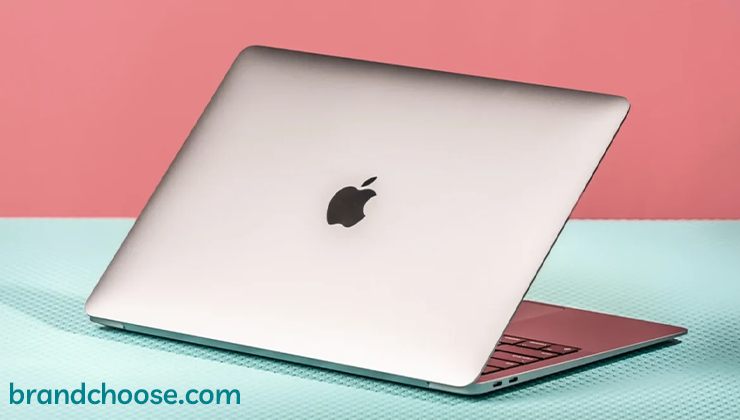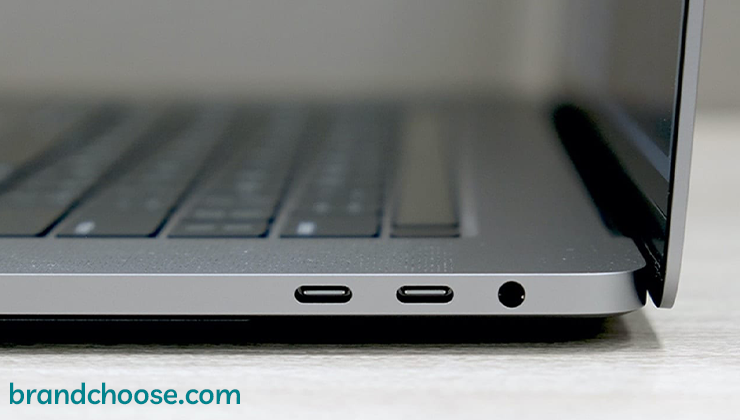Highlights
Premium design – Sleek, minimalistic, and luxurious
Exceptional performance – macOS optimized for creatives
Top-tier displays – Retina with excellent color accuracy
Long battery life – Strong efficiency in M3 and M4 models
Seamless ecosystem – Tight integration with other Apple products
Focus on innovation – Leading features like Face ID & Touch Bar
In the realm of tech innovation, Apple has long been a frontrunner, setting trends and pushing boundaries with each new release. Among its flagship products, Apple laptops stand out as sleek, powerful, and meticulously designed devices that cater to the needs of professionals, creatives, and everyday users alike. In this article, we delve into what sets Apple laptops apart from the competition, their pros and cons of Apple laptops.

Apple laptops, notably the MacBook Air and MacBook Pro series, boast a combination of premium build quality, seamless integration with Apple's ecosystem, and cutting-edge features that distinguish them from other brands. One of the key differentiators is macOS, Apple's proprietary operating system, renowned for its intuitive interface, robust security measures, and seamless synchronization across Apple devices. Let's read more about its features.
Product Selection
3.5 /5
Apple offers a diverse selection of laptops within its MacBook series, each tailored to cater to various user preferences and needs. Each model features distinct specifications and configurations, granting users the freedom to choose according to their specific requirements such as processing power, graphics capabilities, memory, and storage capacity. The latest iterations of MacBooks showcase Apple's proprietary M1 chip, signaling an advancement in performance and energy efficiency compared to their predecessors relying on Intel architecture. An evident advantage of Apple's product range lies in the consistency of design and build quality throughout. Famed for their sleek aesthetics, durable construction, and high-resolution Retina displays, they exemplify top-tier craftsmanship. Furthermore, despite the advancements brought about by the adoption of the M1 chip, compatibility issues with certain software applications have emerged, presenting a significant concern for users who heavily rely on specific programs for professional or recreational purposes. Despite these intricacies, Apple's laptops persist as contenders, offering a seamless combination of performance, design, and user satisfaction that proves challenging to rival.
Affordability
2.1 /5
Though Apple laptops boast great quality, their prices are mostly on the higher side and hence their affordability score is normally low. At its base, the starting price of the MacBook Air M3 is $1,099, while upticks in RAM and storage can vastly increase that price. The prices of the MacBook Pro series can go over $7,000, especially with high-end variants featuring the M3 Max chip. Apple laptops do give good value for money considering what you pay for, but high base prices rule it out as an exactly affordable choice .
Reputation
5.0 /5
Apple is a very well-known and trusted brand with a history of innovative but reliable products. It has constantly received high ranks for customer satisfaction and remains unmatched in terms of security and privacy features. It also provides very regular software updates, extending the life of its products.
Customer Support & Warranty
4.8 /5
Customer support for this brand of laptop is exemplary, with in-store services available in every Apple store around the world, along with an enormously highly-rated online support system. The laptops come with a one-year warranty, extendable with AppleCare+. With AppleCare, the customer is covered further, and the repairs and replacements become quite readily available to them. Thus, high availability of resources towards troubleshooting and repair contributes to its high score in this category.
Battery Life
4.6 /5
Apple's laptops have taken pride of place in terms of battery life. The MacBook Air M3 claims to go as long as 18 hours during video playback, while the Pros push a similar performance envelope for battery tests, making them nothing short of perfect and fitting for extended workdays on a single charge.
Display
4.9 /5
One would be hard-pressed to find better displays than those available on the Apple laptops, coming in both Retina and Liquid Retina varieties, brilliant, sharp, and color-accurate. There are even Liquid Retina XDR displays on the Pros, offering HDR content with wonderful contrast. The only dark point that puts users off is the 60Hz refresh rate on non-Pro versions, although well enough for the majority of users.
Performance
4.9 /5
Apple's M3 and M4 chips have really set a new performance benchmark for laptops, making them some of the best in their class. The MacBook Air M2 and M3 models ran smoothly, even while tasked with resource-intensive work like photo and video editing. Meanwhile, the MacBook Pro M3 Max raises the bar with top-of-class graphics. Speed and efficiency set Apple laptops apart from everyday tasks to professional editing.
Features & Innovation
4.9 /5
Apple has continued to innovate its chips internally, leaving Intel's processors behind for more power-effective and high-performing chips. The new features attached to the MacBook Pros, called ProMotion displays, carry a 120Hz refresh rate for smooth visuals. In addition, features such as MagSafe charging, multiple Thunderbolt ports, and long battery life, such as up to 18 hours on the MacBook Air M3, push Apple further in the field of innovation.
Design & Style
4.9 /5
Apple's laptops keep their sleek look thanks to the lightweight and durable minimalist aluminum unibody. For instance, the latest MacBook Air M3 offers a wedge shape for a thin profile and multiple color options. By the same virtue, lines of professional Apple laptops are impressive in terms of premium finishes and thinner screen bezels. Consistent aesthetic strength across the board supports Apple's high score in the design class. The MacBook Air, weighing only 2.75 pounds, was perfect for traveling.

Build Quality & Durability
4.9 /5
Apple still leads the world in terms of build quality, where their laptops are constructed from a solid block of aluminum, which is recycled, strong, and kind to nature. Keyboards and trackpads were made to last, just like the Retina and Liquid Retina displays, which are both durable and a treat to look at. Reports prove this, where Apple's laptops have survived more than three years with effective maintenance, which helped the brand once more in this category.
Conclusion
In conclusion, Apple laptops stand out for their blend of innovative features, premium design, and seamless integration with the Apple ecosystem. While they command premium prices and have some limitations, they continue to set industry standards and cater to the discerning needs of users across various domains. With effective marketing strategies, Apple maintains its position as a leader in the laptop market, continually pushing boundaries and shaping the future of computing.





